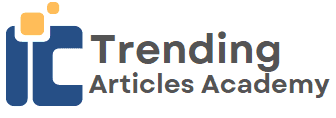Blogging on Free Hosts: Why It’s Not a Good Idea
Starting a blog is an exciting idea,
but the choice of platform is crucial to your success. Many new bloggers are
tempted by the idea of free hosting, thinking it’s a cost-effective way to
start. However, this idea comes with significant drawbacks that can hinder your
blog's growth and credibility. In this article, we'll explore why the idea of
blogging on free hosts might not be as good as it seems.
The Idea of Free Hosting: An Overview
The idea of free hosting is
appealing because it seems like a risk-free way to test the waters of blogging.
But this idea often leads to unexpected limitations that can stifle your
creativity and growth. Free hosts often impose restrictions that can make it
difficult to execute your ideas fully.
Limited
Control: Why the Idea of Free Hosting Can Be Restrictive
When you opt for free hosting, the
idea of having full control over your blog becomes an illusion. Free hosts
usually limit customization options, making it hard to implement your ideas.
You might find yourself stuck with generic templates and limited plugin access,
restricting your ability to tailor your blog to your unique vision.
The
Impact of Ads: An Unwanted Idea:
One of the less appealing ideas that
come with free hosting is the presence of ads on your blog. These ads are not
only distracting but can also drive visitors away. The idea of your content
being overshadowed by ads is something most bloggers want to avoid.
Lack
of Professionalism: A Bad Idea for Branding
The idea of branding is vital for
any blog’s success. Free hosts often include their own branding in your blog's
domain name (e.g., yourblog.freehost.com), which can undermine your blog’s
professionalism. This idea can negatively impact how your audience perceives
you, making it harder to build trust and authority in your niche.
SEO Limitations: A Risky Idea for Growth:
The idea of growing your blog
through search engine optimization (SEO) becomes challenging on free hosts.
Many free platforms do not offer advanced SEO tools, making it harder for your
blog to rank well on search engines. The idea of being buried in search results
is not what any blogger wants.
Slow
Loading Speeds: An Idea that Drives Readers Away
Another idea you might not consider
initially is how free hosting can impact your blog’s loading speed. Free hosts
often have slower servers, leading to longer loading times. This idea is
detrimental because today’s readers expect fast, responsive websites. Slow
speeds can cause visitors to leave your site before they even see your content.
Security Concerns: An Unsettling Idea:
The idea of having a secure blog is
crucial, especially if you plan to handle sensitive information or monetize
your site. Free hosting often comes with minimal security features, leaving
your blog vulnerable to attacks. The idea of losing all your hard work to a
hacker is a risk that no blogger should take.
Data
Ownership: An Overlooked Idea
When you blog on a free host, the
idea of data ownership becomes murky. Often, free hosts retain the right to
your content, meaning you could lose access or control if the host changes its
policies or shuts down. The idea of not fully owning your content is a
significant drawback for serious bloggers.
Scalability Issues: A Limiting Idea for Ambitious Bloggers:
The idea of scaling your blog is
important if you aim to grow your audience and revenue. However, free hosting
usually limits your bandwidth and storage, making it difficult to expand. This
idea is particularly concerning if your blog starts to gain traction and you
need more resources to support increased traffic.
Limited Monetization: An Idea that Restricts Income:
Monetizing your blog is a common
idea among bloggers, but free hosts often place restrictions on how you can do
this. Whether it’s limiting ad networks or banning e-commerce plugins, the idea
of making a significant income from a blog on a free host becomes less
feasible.
The
Idea of Moving: Transitioning from Free to Paid Hosting
Eventually, many bloggers outgrow
the idea of free hosting and decide to move to a paid platform. However, this
transition can be complicated, involving data migration, potential downtime,
and the risk of losing your SEO rankings. The idea of starting over can be
daunting, especially when it could have been avoided by choosing a paid host
from the beginning.
Conclusion
In the end, the idea of using free
hosting may save you money initially, but the long-term consequences can
outweigh the benefits. If you're serious about blogging, it’s a good idea to
invest in a reliable, paid hosting service that gives you the control,
security, and scalability you need to succeed. Remember, the idea is to build
something lasting and valuable—something that free hosting might not be able to
support.
FAQs
- Why is the idea of free hosting so popular?
- The idea of free hosting is popular because it offers
a low-cost entry point for new bloggers. However, the limitations often
outweigh the benefits.
- Can I monetize a blog on a free host?
- While the idea of monetizing on a free host is
possible, it’s often restricted by the host’s terms and conditions,
limiting your income potential.
- What happens if my blog outgrows a free host?
- The idea of outgrowing a free host usually means
you’ll need to transition to a paid platform, which can be complex and
potentially risky.
- Is free hosting a bad idea for personal blogs?
- For personal blogs, the idea of free hosting can be
acceptable, but it’s not ideal if you plan to grow your audience or
monetize your content.
- How can I avoid the pitfalls of free hosting?
- The best idea is to start with a paid host from the beginning, ensuring you have the flexibility, control, and tools to build a successful blog.








0 Comments